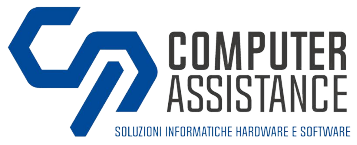If you have a digital project or to catapult yours web activities, it is highly likely that one exists software platform that is right for you to help you realize your idea.
In fact, if you own a company or a small business, it is very likely that you have already understood theHuge potential and benefits to extend and promote your business through the web.
If, however, you want to start from scratch with a project entirely built online, you may be aware of the difficulties and potential hitches that you can easily run into when you don't have the suitable tools.
For this reason we want to pay attention to the software platforms available online, through which expert teams of developers, such as those of Noitech Software House, they can bring your project to life in a simple and efficient way.
More specifically, we will focus on: the website development, the first step for the online visibility of any activity or project; on the e-commerce creation for entrepreneurs who want to enjoy the advantages of e-commerce; on the creation of e-learning portals for projects relating to training and education; and, finally, on the platforms of marketing automation, an essential tool for promoting any of the previous projects.
The advantages of relying on platforms to create digital solutions and projects
The use of software platforms for the creation of e-commerce, e-learning and websites offers numerous advantages, particularly valuable for companies or professionals who want create successful digital projects efficiently and economically.
Software platforms, in fact, offer a solid and pre-configured infrastructure for the creation of digital projects, allowing rapid development, ease of use, cost savings and simple and immediate access to resources and support.
In more detail, and just to begin with, software platforms provide a already structured and pre-configured development environment, which saves valuable time in the development phase, since you don't have to start from scratch.
For example, in e-commerce platforms and websites, design templates and pre-built components make them easier to create.
Furthermore, many platforms are designed to be intuitive and accessible even to those without in-depth technical knowledge. This opens the way to a wide range of users, allowing them to manage their project themselves.
Then the platforms come constantly updated to stay abreast of technology trends and address security vulnerabilities.
But let's talk about now scalability. For those who don't know, we're talking about the ability of software to grow hand in hand with your project, without always having to rebuild everything from scratch. For example, websites and online stores built through platforms can handle an increasing number of visitors and products.
Although the platforms have a set of predefined features, however, many of them allow customizations and integrations to adapt to the specific needs of your project.
In addition to these development-related advantages, there are other more strictly "operational" benefits.
The platforms, for starters, deliver integrated monitoring and analysis tools to help you better understand user behavior and improve your project over time.
Then, they offer a Quick Time-to-Market. In fact, thanks to the speed of implementation of the platforms, you can launch your project on the market more quickly, allowing you to start generating revenue or adopting new initiatives faster.
Finally, updates and maintenance of the platforms are generally easier to manage compared to a complex custom system. This reduces long-term costs and the risk of downtime.
What are the main software platforms for digital projects
There are several software platforms and listing them all would be crazy. There are platforms with more or less functionality, more or less complex to use, more or less expensive to maintain. In short, there is something for all tastes.
What we must not lose sight of, however, is that to create a truly professional, reliable and efficient project, improvisation doesn't pay. Instead, it is necessary to rely on professionals capable of developing your project through these platforms quickly and flawlessly.
In the Noitech Software House, for example, we rely on best platforms specific for every need.
WordPress
WordPress is one of the content management platforms (CMS) most popular in the world and is widely used to create websites.
It's a platform reliable and versatile, which combines ease of use with a wide range of features, suitable for a variety of purposes, from blogging to e-commerce and much more
Here, then, are the main features and the reasons why to choose WordPress for creating websites:
- Flexibility: WordPress is highly flexible and adaptable. You can create any type of website, from personal blogs to business sites, news portals, online stores and much more. Additionally, there are thousands of themes and plugins available that allow you to further customize your site's design and functionality.
- SEO-Friendly: WordPress is well optimized for search engines (SEO). It provides tools and plugins that make it easy to optimize content for search engines, thus improving the visibility of your website on search engines like Google.
- Updates and Security: WordPress regularly offers updates to improve performance and security. Additionally, there are security plugins available to help protect your site from online threats.
- Mobile-Responsive: Most WordPress themes and designs are responsive, meaning your site will automatically adapt to different screen sizes, making it accessible from mobile and desktop devices.
- E-commerce: If you want to create an online store, WordPress offers plugins like WooCommerce that easily transform your site into a complete virtual store.
- Accessible Costs: WordPress is open-source and free to use. While you'll have to pay for hosting and may want to invest in premium themes or plugins, the total cost of starting a WordPress site is generally affordable.
PrestaShop
PrestaShop is an open-source e-commerce platform designed specifically for creating and managing online stores.
With its ease of use, customization and security, it is a popular choice for businesses looking to launch successful e-commerce.
Here are some of the main reasons to choose PrestaShop to create e-commerce sites:
- Flexibility and Customization: PrestaShop offers a wide range of themes and design templates, as well as a library of modules and plugins that allow you to further customize your store. You can tailor the look and functionality of your store to meet the specific needs of your business.
- Safety: Security is paramount for online stores. PrestaShop implements advanced security measures to protect customer data and payments. Additionally, you can add additional layers of security with security modules.
- SEO-Friendly: PrestaShop is search engine friendly, which means you can easily optimize your store to improve its visibility on search engines like Google.
- Payment Management: The platform offers a wide range of payment options to choose from, including credit cards, PayPal and other online payment systems. You can also add custom payment methods.
- Analysis and Reporting: PrestaShop offers built-in analytics and reporting tools that help you monitor store performance, including data on sales, visitors, and conversions.
- Internationalization: If you want to expand your store internationally, PrestaShop supports multi-language and multi-currency store management, as well as country-specific taxes and regulations.
Moodle
Moodle is an online learning platform (LMS) open-source designed for creating e-learning environments.
Powerful and flexible, it supports online teaching and training in many different situations, from schools to businesses. Its versatility, along with its open-source nature, makes it a popular choice for institutions and educators looking to offer high-quality, interactive online courses.
Here are some of the main reasons to choose Moodle to create e-learning portals:
- Flexibility: Moodle is highly flexible and customizable. Administrators can tailor the look and functionality of the platform to meet specific educational and organizational needs. You can add modules, themes and plugins to extend Moodle's functionality.
- Course Management: Moodle offers a wide range of course management tools. Teachers can create and organize content, assign tasks, set deadlines, and track student progress.
- Interaction and Collaboration: Moodle encourages interaction and collaboration between teachers and students. It offers discussion forums, chat, internal messaging, and resource sharing tools. These tools improve student engagement and active participation.
- Monitoring and Evaluation: Moodle allows you to monitor and evaluate student performance. Teachers can assign quizzes, assignments, and tests, as well as provide personalized feedback on progress.
- Accessibility: Moodle is committed to accessibility, ensuring that the platform is usable by students with different abilities and needs. This is important to ensure equity in online learning.
- Safety: Moodle places a strong emphasis on the security of student and teacher data. Student personal information and performance are protected by rigorous security measures.
- Scalability: Moodle is scalable and can be used by small to large organizations. You can manage thousands of users and courses on a single Moodle instance.
The importance of Marketing Automation
There marketing automation it is a fundamental element for the success of a digital project. First, because marketing automation allows you to save precious time.
In the digital world, attention is a precious commodity, and automation allows it to free human resources from repetitive manual tasks such as sending emails, managing social media and tracking leads. This saved time can be reinvested in more strategic and creative activities.
Furthermore, marketing automation significantly improvesefficiency of marketing campaigns. Thanks to advanced segmentation and personalization tools, you can send highly targeted messages to the right users at the right time. This increases the relevance of messages and the likelihood of user engagement.
There customization is another crucial point. With automation, it's possible collect data on user behavior and use them to adapt messages and offers based on their interests and past actions. This personalization improves the user experience and increases customer loyalty.
Marketing automation also helps improve conversions. By automatically sending follow-up and follow-up messages, you can reduce the number of lost prospects and increase the likelihood that a lead will turn into an actual customer.
Another important advantage is the measurability. With automation, it is possible to accurately monitor the effectiveness of marketing campaigns through data and metrics.
Finally, marketing automation is essential for adapting to changes in user behavior in the digital environment. User trends and preferences are constantly changing, and automation allows you to respond quickly to these dynamics, keeping your digital project relevant and competitive.
Mautic
Mautic is an open-source marketing automation platform that we at Noitech have chosen to help companies manage and automate marketing activities.
Here are some reasons:
- Flexibility and Customization: Mautic is highly flexible and customizable. Users can create custom workflows to automate a wide range of marketing tasks, including sending emails, tracking website visitor behavior, managing contacts, and more.
- Contact Management: Mautic offers advanced contact management tools that allow you to segment users based on specific criteria, such as interests, behavior and demographics.
- Email Marketing: Mautic offers a full suite of email marketing tools, including campaign creation, email tracking, content personalization, and delivery scheduling.
- Monitoring and Analysis: The platform offers detailed analytics of your marketing activities, allowing you to monitor campaign performance and make data-driven improvements.
- Integrations: Mautic can be integrated with other applications and services, including CMS, CRM and e-commerce platforms. This allows for centralized data management and greater efficiency.
- Social Media Automation: Mautic enables the automation of social media tasks, such as scheduled content publishing and automatic sharing of articles and news.
- Lead Scoring: With Mautic you can score leads based on their interactions with your brand, helping you identify the most promising leads for your sales team.
The Noitech “method”.
Although many platforms are designed to be intuitive and accessible even to those without in-depth technical knowledge, use them to create concrete and truly functional digital projects It's not as easy as it might seem.
To truly achieve all the objectives of your project, exploiting the potential of software platforms for web solutions, it is necessary to put aside all forms of improvisation and rely on real experts.
Only with the help of professional developers (and professional), in fact, you will be able to truly take full advantage of all the features and functions of the software platforms, to give your project the shape, appearance and functionality you want.
Choose your developer team Noitech Software House means putting yourself in the hands of experts with decades of experience in the sector, able to satisfy all your needs and listen carefully to your requests before starting to work through a consolidated method in 8 fundamental steps:

This is an approach that is successfully applied to a wide range of software projects, including those involving digital platforms, which we talked about in this article, i front-end software, i back-end software and the mobile applications.
The goal is to standardize the development process to ensure consistent results free from structural defects.
This is why we rely on ISO/IEC 12207 standard for software lifecycle management, designed to become the reference in the software development and maintenance process.
Its structure is characterized by flexibility and modularity, so that it adapts to the needs of any project, and is based on two fundamental principles:
- Modularity: which involves defining processes with low coupling and high cohesion.
- Responsibility: which means entrusting each phase to a designated manager, ensuring a clear attribution of responsibilities within the development team.
In Noitech, let's put the success of the project and the satisfaction of our customers, committing ourselves to take care of every detail during the entire process of realizing your project.
Do not hesitate to contact us to discuss your project or obtain further clarification. We are here to help you realize your project flawlessly.






















